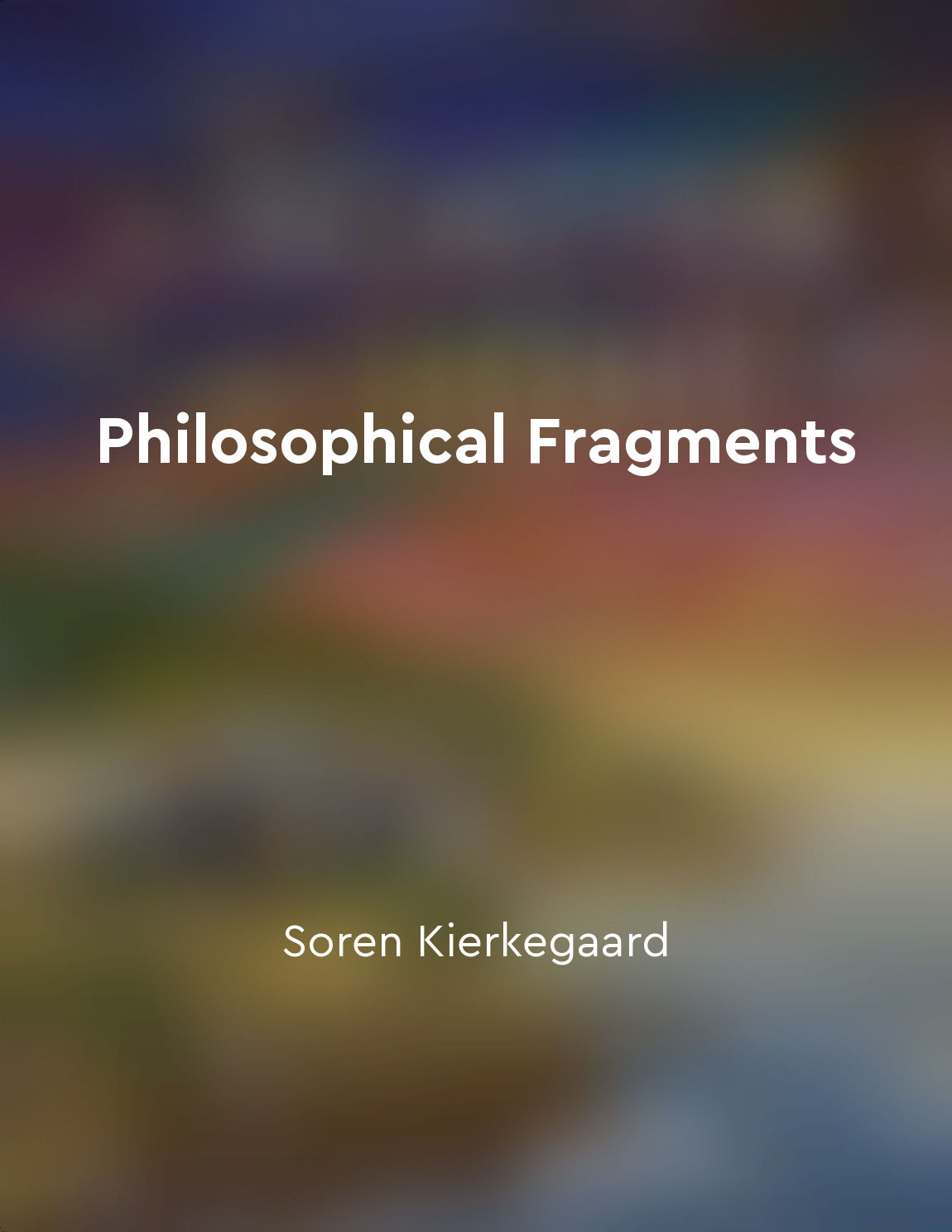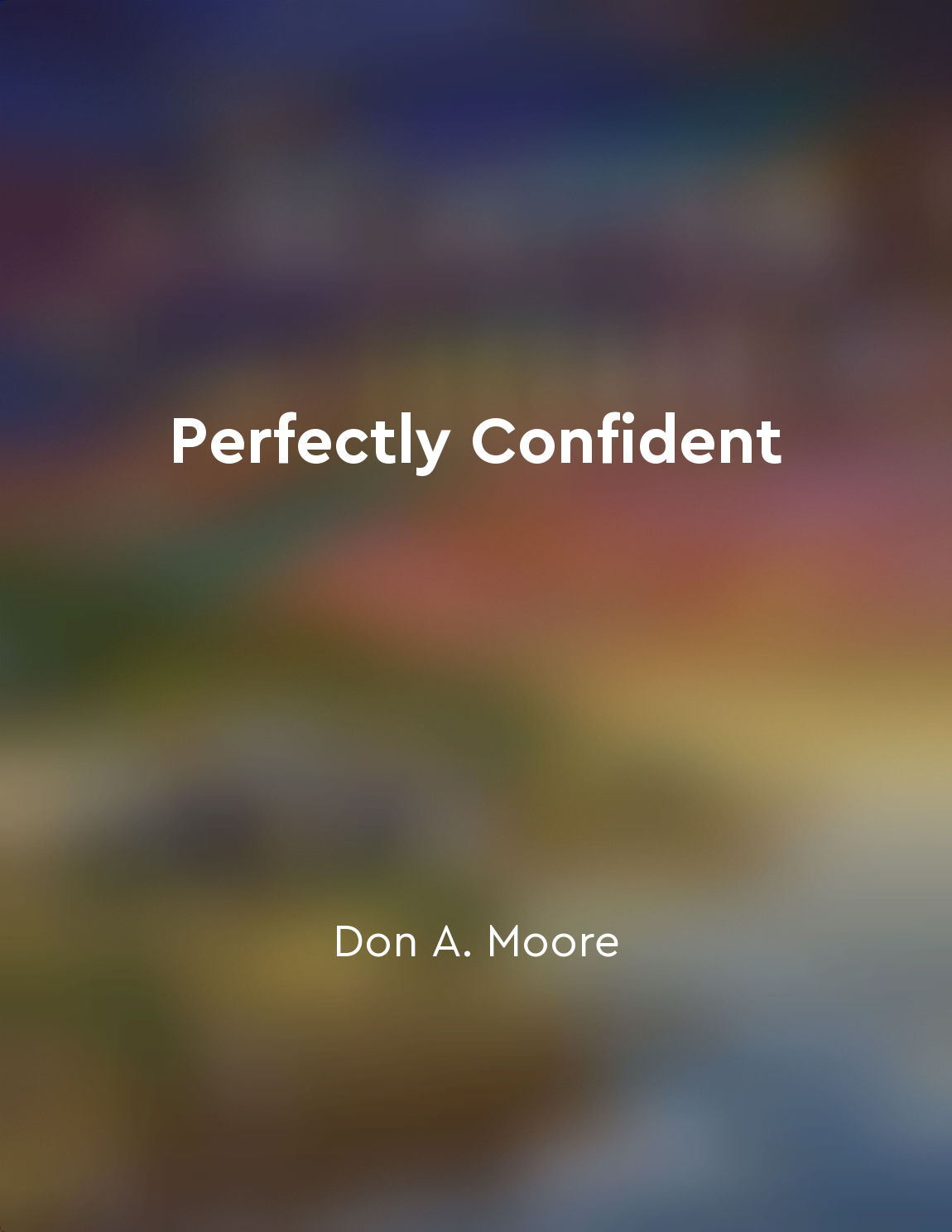Certainty is an elusive concept from "summary" of An Enquiry Concerning Human Understanding by David Hume
The idea that certainty is an elusive concept can be deeply unsettling to many individuals. We often seek to find solid ground on which to base our beliefs and actions, yet the more we scrutinize the nature of our knowledge, the more we may come to realize that certainty is a rare commodity indeed. In our daily lives, we rely on a variety of sources to guide our decisions - sensory experiences, reasoning, testimony from others. However, each of these sources is subject to limitations and fallibility. Our senses can deceive us, our reasoning can lead us astray, and the testimony of others may be unreliable. As a result, our beliefs are always open to doubt and revision. Even in the realm of mathematics and logic, where certainty seems most attainable, we find that our knowledge is ultimately based on unproven assumptions. We may have confidence in the consistency of our reasoning, but we cannot be certain that our axioms are true. As Hume puts it, "all the abstract reasonings in the world will never be able to make us assert a proposition, which we have not antecedently embraced, either by our senses, or instinct, or by some original principle of our constitution." Moreover, the very nature of human understanding is such that we are limited in our capacity to grasp the ultimate truths of the universe. Our minds are finite, our perspectives limited, and our methods of inquiry imperfect. As a result, we must always be humble in our claims to knowledge, recognizing that our grasp of reality will always be partial and provisional. In the face of these challenges, Hume encourages us to embrace a spirit of skepticism and humility. Rather than clinging dogmatically to our beliefs, we should be open to questioning and revising them in light of new evidence. By acknowledging the limitations of our understanding, we can cultivate a more nuanced and sophisticated approach to knowledge, one that is characterized by curiosity, humility, and open-mindedness. In the end, certainty may remain an elusive concept, but it is precisely this recognition of our epistemic limitations that can lead us to a deeper appreciation of the complexities of human knowledge and understanding. By embracing uncertainty, we can cultivate a more reflective and intellectually honest approach to the world around us.Similar Posts
The book sheds light on the complexities of scientific practice
The complexities of scientific practice are illuminated through a detailed examination of the dispute between Thomas Hobbes and...

Through selfexamination, one can come to a deeper understanding of their own beliefs and values
Through the process of self-examination, individuals have the opportunity to delve deeper into their own beliefs and values. Th...
Practice mindfulness to improve decisionmaking
When we talk about mindfulness, we often think of meditation, deep breathing, and other relaxation techniques. While those prac...
Knowledge is shaped by cultural and societal influences
Knowledge is shaped by cultural and societal influences. Our beliefs and ideas are not formed in a vacuum, but are rather influ...
The nature of presence is crucial
Presence is not merely a concept to be taken lightly. It is crucial, for it reveals the very essence of being itself. To unders...
Delving into the complexities of quantum mechanics
Abraham Pais takes us on a journey through the intricacies of quantum mechanics, unraveling its complex nature with remarkable ...

Embrace constructive criticism
Constructive criticism is like a gift-wrapped package waiting for you to unwrap it. It may not always be easy to accept, but wh...
